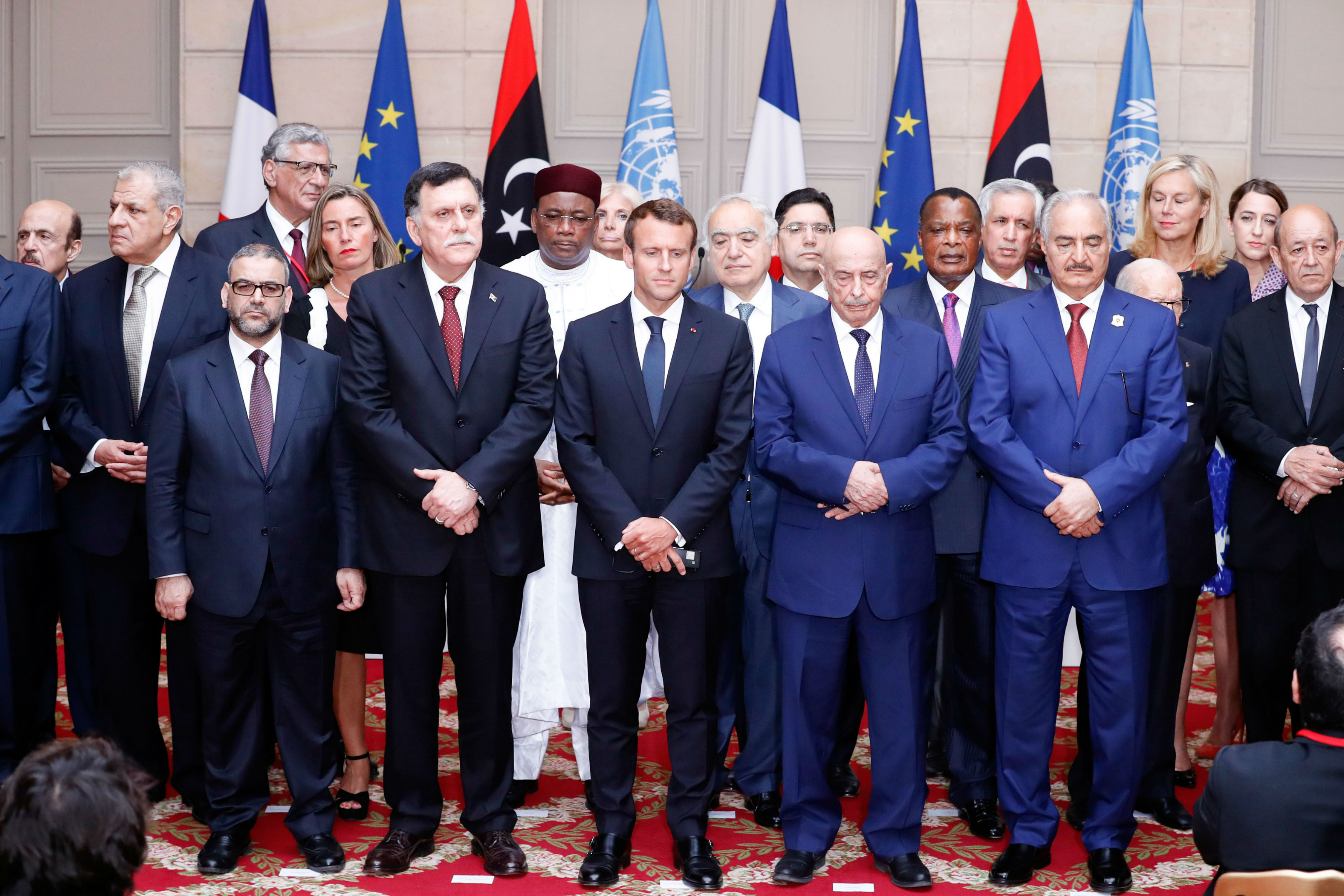Will elections in Libya bring peace to the divided country?
‘Ambitious, and potentially unrealistic’ timetable agreed for first parliamentary vote since fall of Gaddafi

A free daily email with the biggest news stories of the day – and the best features from TheWeek.com
You are now subscribed
Your newsletter sign-up was successful
Rival Libyan factions have set a provisional date for the country’s first elections since the fall of Muammar Gaddafi over seven years ago.
The declaration agreed yesterday would create a political framework to pave the way for UN-backed parliamentary and presidential elections later this year, bringing to an end the country’s brutal civil war.
Libya has been in turmoil since the Nato-backed toppling of Gaddafi in 2011 at the height of the Arab Spring, and since 2014 has been divided between competing political and militia groups based in the capital Tripoli and the east.
The Week
Escape your echo chamber. Get the facts behind the news, plus analysis from multiple perspectives.

Sign up for The Week's Free Newsletters
From our morning news briefing to a weekly Good News Newsletter, get the best of The Week delivered directly to your inbox.
From our morning news briefing to a weekly Good News Newsletter, get the best of The Week delivered directly to your inbox.
The International Conference on Libya aimed at agreeing the framework for a lasting peace was held at the Elysee Palace in Paris. It was attended by the powerful eastern-based commander Khalifa Haftar, Tripoli Prime Minister Fayez Seraj, and the leaders of rival parliamentary assemblies as well as the UN envoy to Libya, Ghassan Salame, French President Emmanuel Macron, and representatives from Libya’s neighbours, international powers and organisations.
France24 says “many analysts are sceptical that the initiative to invite four senior figures representing Libya's factions, as well as neighbouring countries and regional powers, can lead to significant progress” and called the peace conference a “risky French-backed push for a political settlement in the country”.
Past attempts at peace deals in Libya “have often been scuttled by internal divisions among the country’s armed groups and by the different countries backing the local actors”, Reuters says.
This time round appears to be different however, with all parties agreeing to a declaration which calls for the immediate unification of the central bank and the phasing out of parallel government institutions.
A free daily email with the biggest news stories of the day – and the best features from TheWeek.com
It also makes a commitment to support the creation of a national army and, most crucially, a commitment “to set the constitutional basis for elections and adopt the necessary electoral laws by September 16, 2018 and hold Parliamentary and Presidential elections on December 10, 2018”, the joint-statement said.
The Guardian’s diplomatic editor Patrick Wintour described the plan to stage “credible and peaceful” parliamentary and legislative elections in the country on 10 December, as “ambitious, and potentially unrealistic”.
Al Jazeera's Mahmoud Abdelwahed was more optimistic, saying that the elections in Libya could be part of a long-term solution, however, he added the process still has “a long way to go” as many of Haftar's opponents and other strong key players in Libya were not included in the talks.
-
 Political cartoons for February 3
Political cartoons for February 3Cartoons Tuesday’s political cartoons include empty seats, the worst of the worst of bunnies, and more
-
 Trump’s Kennedy Center closure plan draws ire
Trump’s Kennedy Center closure plan draws ireSpeed Read Trump said he will close the center for two years for ‘renovations’
-
 Trump's ‘weaponization czar’ demoted at DOJ
Trump's ‘weaponization czar’ demoted at DOJSpeed Read Ed Martin lost his title as assistant attorney general
-
 Israel retrieves final hostage’s body from Gaza
Israel retrieves final hostage’s body from GazaSpeed Read The 24-year-old police officer was killed during the initial Hamas attack
-
 China’s Xi targets top general in growing purge
China’s Xi targets top general in growing purgeSpeed Read Zhang Youxia is being investigated over ‘grave violations’ of the law
-
 Panama and Canada are negotiating over a crucial copper mine
Panama and Canada are negotiating over a crucial copper mineIn the Spotlight Panama is set to make a final decision on the mine this summer
-
 Why Greenland’s natural resources are nearly impossible to mine
Why Greenland’s natural resources are nearly impossible to mineThe Explainer The country’s natural landscape makes the task extremely difficult
-
 Iran cuts internet as protests escalate
Iran cuts internet as protests escalateSpeed Reada Government buildings across the country have been set on fire
-
 US nabs ‘shadow’ tanker claimed by Russia
US nabs ‘shadow’ tanker claimed by RussiaSpeed Read The ship was one of two vessels seized by the US military
-
 How Bulgaria’s government fell amid mass protests
How Bulgaria’s government fell amid mass protestsThe Explainer The country’s prime minister resigned as part of the fallout
-
 Femicide: Italy’s newest crime
Femicide: Italy’s newest crimeThe Explainer Landmark law to criminalise murder of a woman as an ‘act of hatred’ or ‘subjugation’ but critics say Italy is still deeply patriarchal